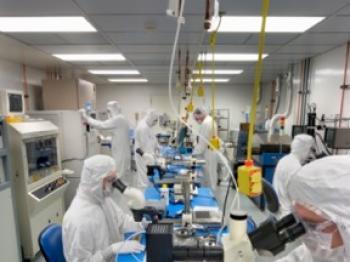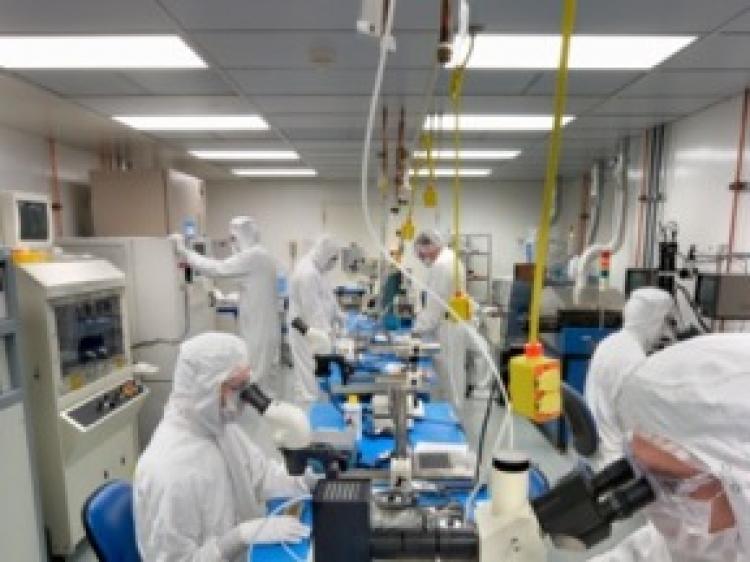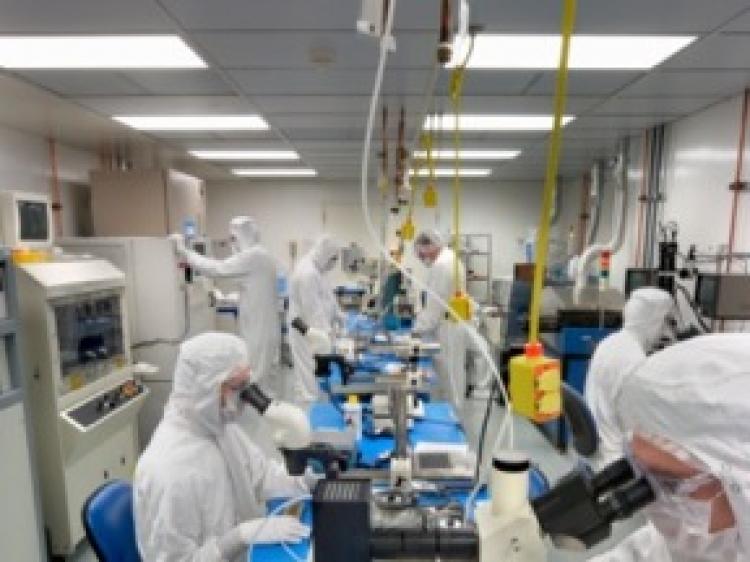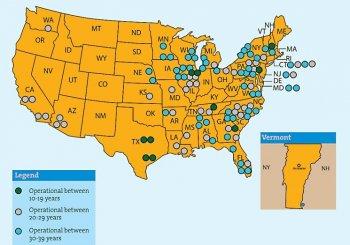When top inventor and scientist Dr. Ray Kurzweil claimed that by 2029 an event called “The Singularity” would occur, in which technology would be so advanced that it could be used to make human beings immortal, most were shocked. Kurzweil, to whom the seemingly eccentric ideas about “The Singularity” are most often attributed, has been described by the Wall Street Journal as “a restless genius” and by Forbes as “the ultimate thinking machine.”
Yes a new development may prove to undermine Kurzweil’s faith in technological immortality, as a British scientist recently demonstrated for the first time that it is possible to infect a human being with a computer virus.
British Systems engineer from University of Reading, Dr Mark Gasson, has succeeded in infecting a computer chip he had earlier implanted in his hand with a computer virus. The implant, a high-end Radio Frequency Identification (RFID) chip, was successfully used to allow him secure access to his university building and his cellular phone.
Gasson had a microchip surgically inserted into his wrist, essentially making himself part machine, as part of his scientific research on the vulnerability of technology implanted in the human body. He reports feeling that the chip was part of his own body. This “surprisingly violating experience” meant that when his microchip got a computer virus, he was getting a computer virus as well.
Instances of human beings using technological devices such as computer chips, pacemakers, and other cosmetic implants to supplement their biological make-up is becoming increasingly more common. Gasson expects that this is the beginning of an ever increasing tendency, saying in an email correspondence, “It is certainly evident that the future will involve the implantation of technology into people. It is likely that we will find applications of implantable medical technology for enhancement and these will become more commonplace.”
In regards to achieving immortality by 2029, however, Gasson expressed skepticism. “Whether we will achieve immortality by 2029, I doubt - indeed whether it is possible at all is open to strong debate,” he questioned.
The corruption of the computer chip implanted in Gasson’s hand came as part of Gasson’s research on the risks of human ‘enhancement’ using technology. Gasson’s finding points to some great security issues that lie in store for the futurist endeavour to technologically ‘enhance’ human beings.
“The aim in part is to put a milestone in the development of implantable technology and to highlight the potential security risks of the future. Indeed poorly considered security in implanted medical devices is becoming well documented in the academic literature (although no devices are currently known to be at immediate risk) and healthy people implanting potentially vulnerable technology is also becoming more common,” said Gasson.
The increasing combination of the human body with machines also raises important philosophical and psychological issues. Dr. Gasson points to the importance of addressing exactly such philosophical issues.
“We are also interested in the philosophical and psychological questions surrounding what we perceive to be our own body’s boundaries. It is known that some people with invasive medical implants over time consider them to actually be part of their body. In this context we can and should talk in terms of computer viruses infecting the person... To analyse this specific proof of concept out of context, from a purely computer science approach, is to entirely miss the bigger picture,” said Gasson.
While the vulnerability of human enhancing chips to technological diseases like computer viruses may undermine the quest for technologically-driven immortality, for Gasson, it stands as a testament to the dangers lying ahead for implanting technology in the human body.
“Security issues are specific to the implantable technology - if we are dependent on the technology, i.e. a medical device, then certainly it could potentially pose a danger. However, we reiterate that at this early stage no medical devices are at any immediate risk, but we must be careful as the technology develops and becomes more capable,” said Gasson.
Yes a new development may prove to undermine Kurzweil’s faith in technological immortality, as a British scientist recently demonstrated for the first time that it is possible to infect a human being with a computer virus.
British Systems engineer from University of Reading, Dr Mark Gasson, has succeeded in infecting a computer chip he had earlier implanted in his hand with a computer virus. The implant, a high-end Radio Frequency Identification (RFID) chip, was successfully used to allow him secure access to his university building and his cellular phone.
Gasson had a microchip surgically inserted into his wrist, essentially making himself part machine, as part of his scientific research on the vulnerability of technology implanted in the human body. He reports feeling that the chip was part of his own body. This “surprisingly violating experience” meant that when his microchip got a computer virus, he was getting a computer virus as well.
Instances of human beings using technological devices such as computer chips, pacemakers, and other cosmetic implants to supplement their biological make-up is becoming increasingly more common. Gasson expects that this is the beginning of an ever increasing tendency, saying in an email correspondence, “It is certainly evident that the future will involve the implantation of technology into people. It is likely that we will find applications of implantable medical technology for enhancement and these will become more commonplace.”
In regards to achieving immortality by 2029, however, Gasson expressed skepticism. “Whether we will achieve immortality by 2029, I doubt - indeed whether it is possible at all is open to strong debate,” he questioned.
The corruption of the computer chip implanted in Gasson’s hand came as part of Gasson’s research on the risks of human ‘enhancement’ using technology. Gasson’s finding points to some great security issues that lie in store for the futurist endeavour to technologically ‘enhance’ human beings.
“The aim in part is to put a milestone in the development of implantable technology and to highlight the potential security risks of the future. Indeed poorly considered security in implanted medical devices is becoming well documented in the academic literature (although no devices are currently known to be at immediate risk) and healthy people implanting potentially vulnerable technology is also becoming more common,” said Gasson.
The increasing combination of the human body with machines also raises important philosophical and psychological issues. Dr. Gasson points to the importance of addressing exactly such philosophical issues.
“We are also interested in the philosophical and psychological questions surrounding what we perceive to be our own body’s boundaries. It is known that some people with invasive medical implants over time consider them to actually be part of their body. In this context we can and should talk in terms of computer viruses infecting the person... To analyse this specific proof of concept out of context, from a purely computer science approach, is to entirely miss the bigger picture,” said Gasson.
While the vulnerability of human enhancing chips to technological diseases like computer viruses may undermine the quest for technologically-driven immortality, for Gasson, it stands as a testament to the dangers lying ahead for implanting technology in the human body.
“Security issues are specific to the implantable technology - if we are dependent on the technology, i.e. a medical device, then certainly it could potentially pose a danger. However, we reiterate that at this early stage no medical devices are at any immediate risk, but we must be careful as the technology develops and becomes more capable,” said Gasson.




